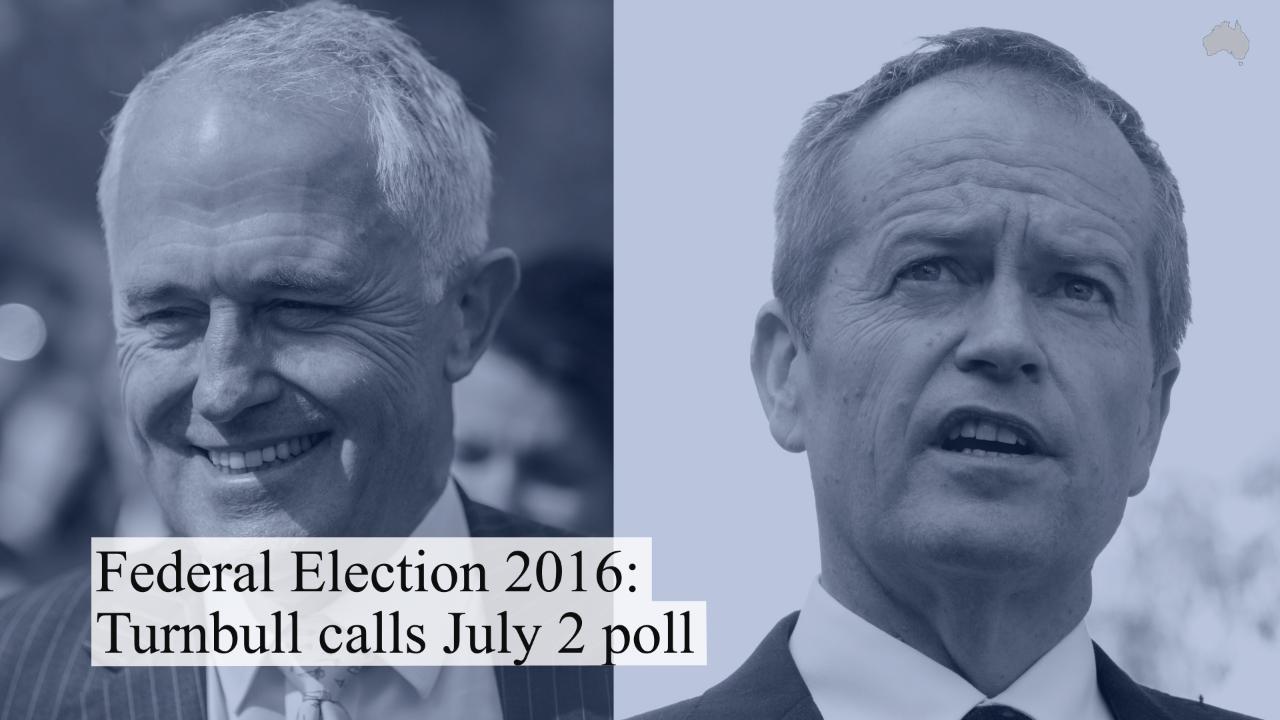Election 2016: Who won day one of the campaign, Malcolm Turnbull or Bill Shorten?

Bill Shorten is going into this campaign as the underdog who must not be underestimated.
Malcolm Turnbull had a stronger message than his opponent on the opening day of the campaign: an appeal to voters to support an economic plan that promises economic growth for all.
Yet Shorten had the sharpest lines. He ripped into the Prime Minister with prepared jibes that could take a personal toll on Turnbull and weaken the government’s support.
Shorten took aim at Turnbull for policies that “reward millionaires” and give “tax cuts for large companies” while threatening the living standards of all Australians.
LIVE: Turnbull calls July 2 poll
His message came with two words repeated more than most: “trust” and “fair”.
“Trust Labor to conduct budget repair that is fair,” he said – a commitment that sounds reasonable if even it does not mean much.
Every pledge on policy followed that format: “trust Labor” to increase funding for schools and hospitals, to tackle climate change, to protect Medicare, to give women a “fair go” and to make sure multinational companies paid tax.
Given the legacy of the last Labor government, when Kevin Rudd and Julia Gillard fought for power, the Opposition has to convince voters it deserves their trust. But trust is also a powerful weapon against the Coalition if voters remember Tony Abbott’s promises at the last election.
Shorten noted that Turnbull made no mention of climate change yesterday, even though the Prime Minister once said he did not want to lead a party that wasn’t interested in climate change.
Nobody from the government side had the obvious rejoinder: Shorten made no mention of border protection or asylum seekers, an area where Labor is at constant risk of open division. (As usual, Labor was quicker than the Coalition when looking for an attack line.)
Turnbull has a policy agenda that presents a mammoth political risk. He is asking voters to support a $48bn tax cut for business, but offering only token tax cuts for workers on more than $80,000 and nothing new at all for workers below that threshold.
The government is on strong ground with a positive policy on growth, which gives it a more compelling economic message than Labor’s appeal to voters who want higher spending on services.
“We have an economic plan for growth and jobs,” Turnbull said. He contrasted this with Labor policies to increase taxes.
The government’s social media campaign repeats this theme. “Back the plan,” it says.
The trouble is that Turnbull did not hammer the message about what the plan delivers.
The company tax cut offers a 1 per cent boost to economic growth (according to Treasury) and is “pretty cheap” given its cost (according to Deloitte Access Economics director Chris Richardson) and would deliver more jobs and higher wages over time (according to Treasury and other economists).
Turnbull did not make any of those key points. He talked about his plan without saying enough about what it would do.
Asked by The Australian to respond to Labor’s demand for fairness, Turnbull came up with a response on Sunday. “Our economic plan is fair — not just to Australians today, but to the generations that will come after us,” he said.
Turnbull must make a stronger effort than that to defeat Labor’s campaign message.
Shorten was disciplined, focused and sharp in his attacks. He has clearly learned more from Abbott than Turnbull ever did.



To join the conversation, please log in. Don't have an account? Register
Join the conversation, you are commenting as Logout